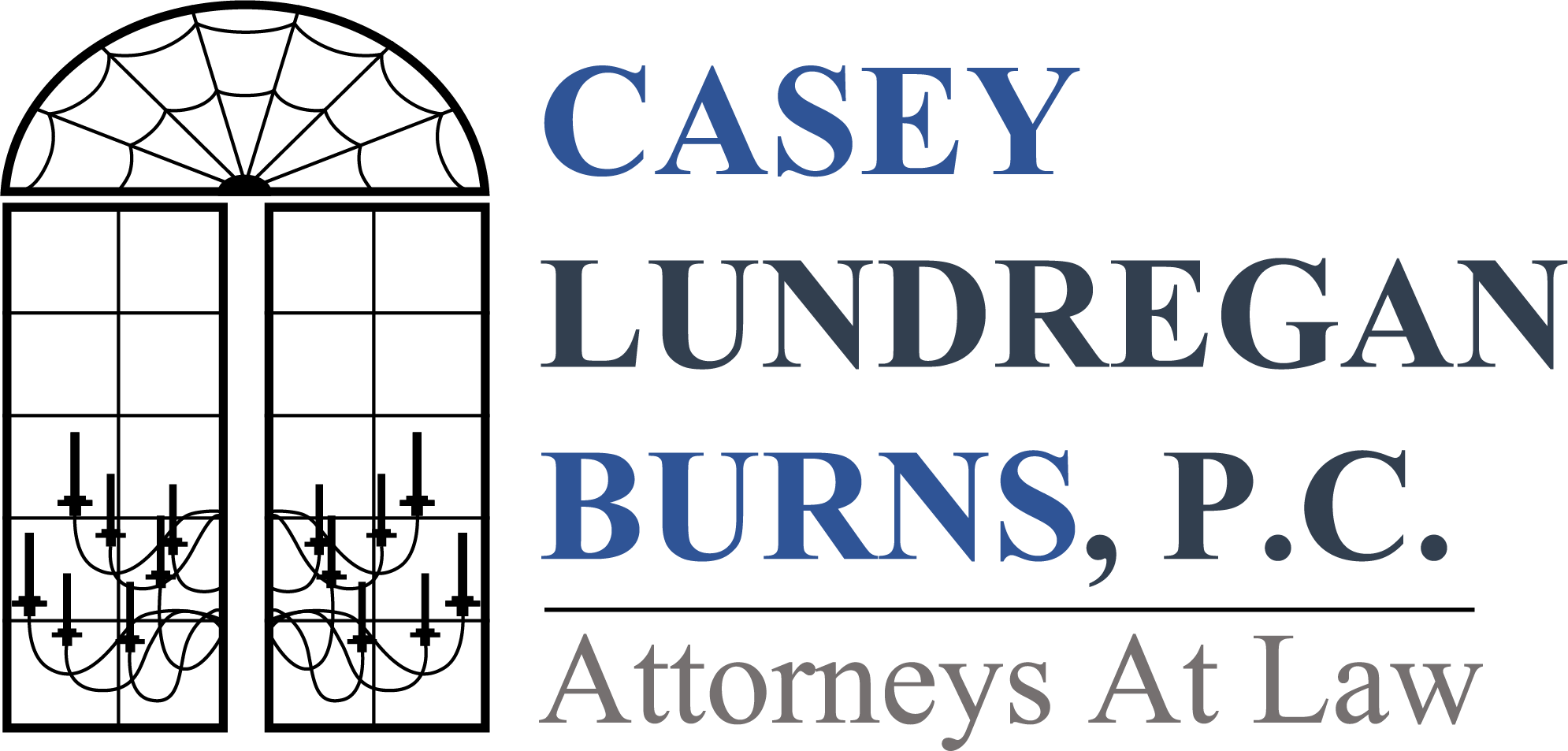Trust Lawyer
Today more than ever, estate planning attorneys are using trusts as a key component of plans for clients in all stages of life. Trusts have been traditionally associated with establishing the dynasty of wealthy families—any many trusts are used to do just that—but trusts can serve a variety of other purposes as well.
Many people in Massachusetts set up revocable “living” trusts to enable their family to avoid probate. Others establish trusts to help establish eligibility for Medicaid to cover long-term care costs, or to reduce tax liability or provide for the needs of vulnerable loved ones or even pets.
The team at Casey Lundregan Burns has been protecting families and helping them achieve their goals with the use of trusts for over 90 years. We develop custom trusts to meet your specific needs and ensure that you understand how the trust works so that you can take full advantage of the provisions. For families that want assistance with trust administration, we can provide guidance and instruction, or we can take on administrative tasks directly. When you invest time and resources into trust creation, we want to ensure you get the most from your investment.
How a Trust Operates
A trust is a legal entity created to hold property. That property is managed by a trustee, who has a fiduciary duty to manage the property according to sound principles and distribute it in accordance with the terms of the trust document. The trustee manages the trust not for their own benefit but for the beneficiary.
The person who creates the trust is often referred to as the grantor. As an example of how a certain type of trust might operate, a grantor parent could set up a trust for an adult child beneficiary with special needs. The trustee ensures that the trust fund is invested properly and that the trust pays taxes and complies with other requirements. The trustee also disburses funds to the individual with special needs to enable them to do things such as buy a computer, take a trip, or sign up for a pottery class. The parent can feel confident that their adult child’s needs will be met far into the future.
Probate Avoidance Trusts
The type of trust set up to avoid probate operates a little differently than the example above. For a revocable probate avoidance trust, the creator also typically serves as their own trustee and beneficiary of the trust. That means they can use all the property in the trust just as they did before the trust was created.
The benefits of this trust become apparent when the grantor passes away or becomes incapacitated. In the event that the grantor cannot manage their own affairs, a successor trustee can step in and take over. When the grantor passes away, all the property in the trust goes directly to alternate beneficiaries without being held up in probate. This type of trust can make it much easier and less expensive to manage affairs after the grantor’s death.
Purposes Served by Irrevocable Trusts
The type of trust used most often for probate avoidance is revocable and can be changed at any time. Other types of trusts are irrevocable, so that grantor cannot remove or access property once it has been transferred into the trust. This type of trust is less flexible, but it is stronger and can be used to shield property from creditors, decrease tax liability, establish eligibility for Medicaid, and many other purposes.
In the example above with a special needs trust, an irrevocable trust would be used so that the assets in the trust are not considered property owned by the beneficiary. This enables the beneficiary to have the benefit of those assets without losing eligibility for government programs.
Casey Lundregan Burns Builds Custom Trusts to Meet Your Needs
At Casey Lundregan Burns, we are dedicated to protecting families, just as we were at the start more than 90 years ago. However, while our dedication hasn’t changed, the laws have, and that has enabled our team to take advantage of new tools to better serve our clients’ needs.
Trusts continue to evolve to provide new options for meeting a variety of goals. To talk to us about whether a trust could benefit your family or for assistance with managing or administering a trust, we invite you to schedule a free case evaluation.
